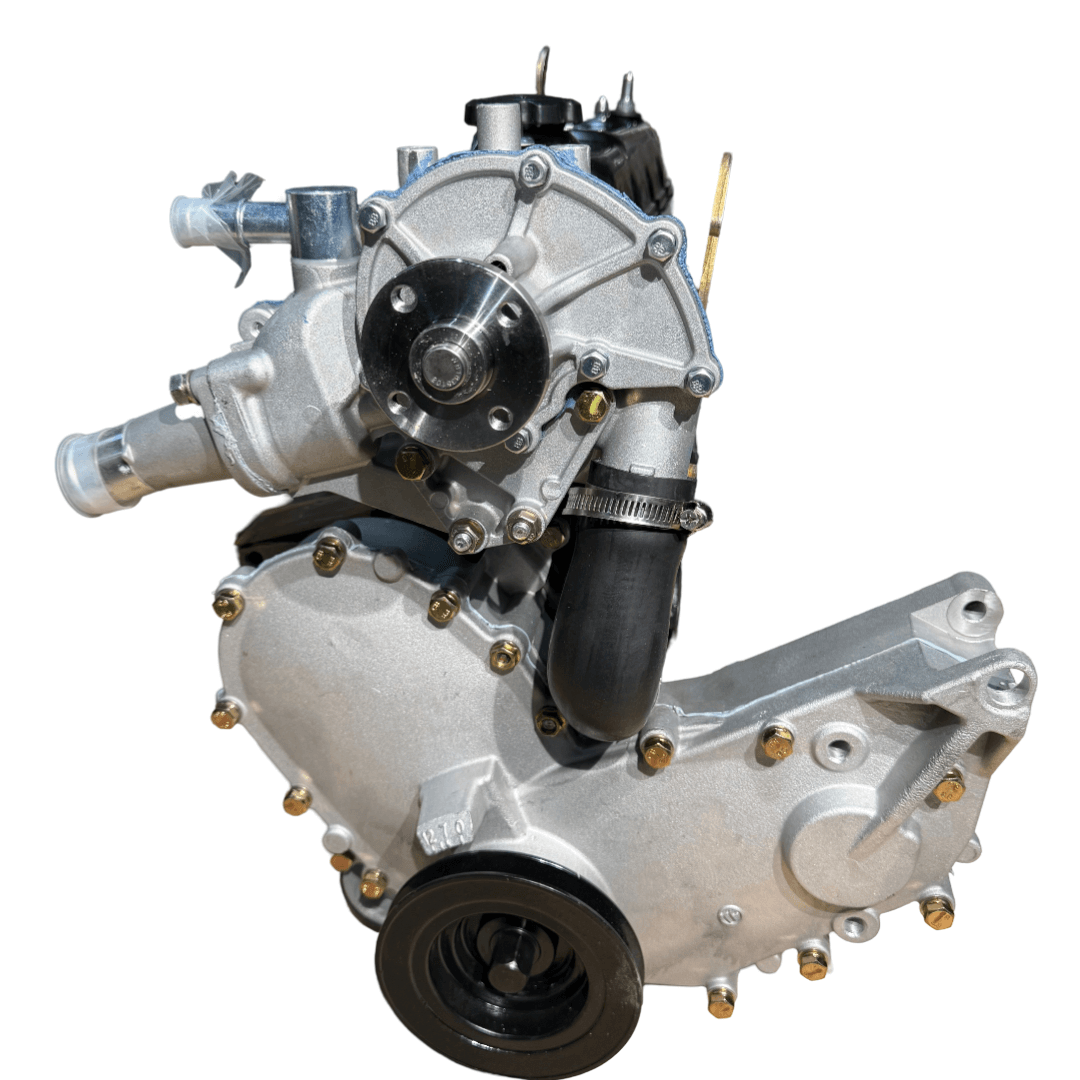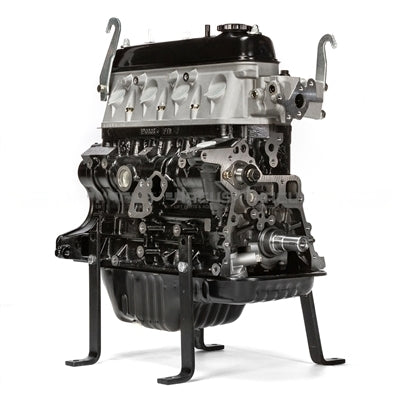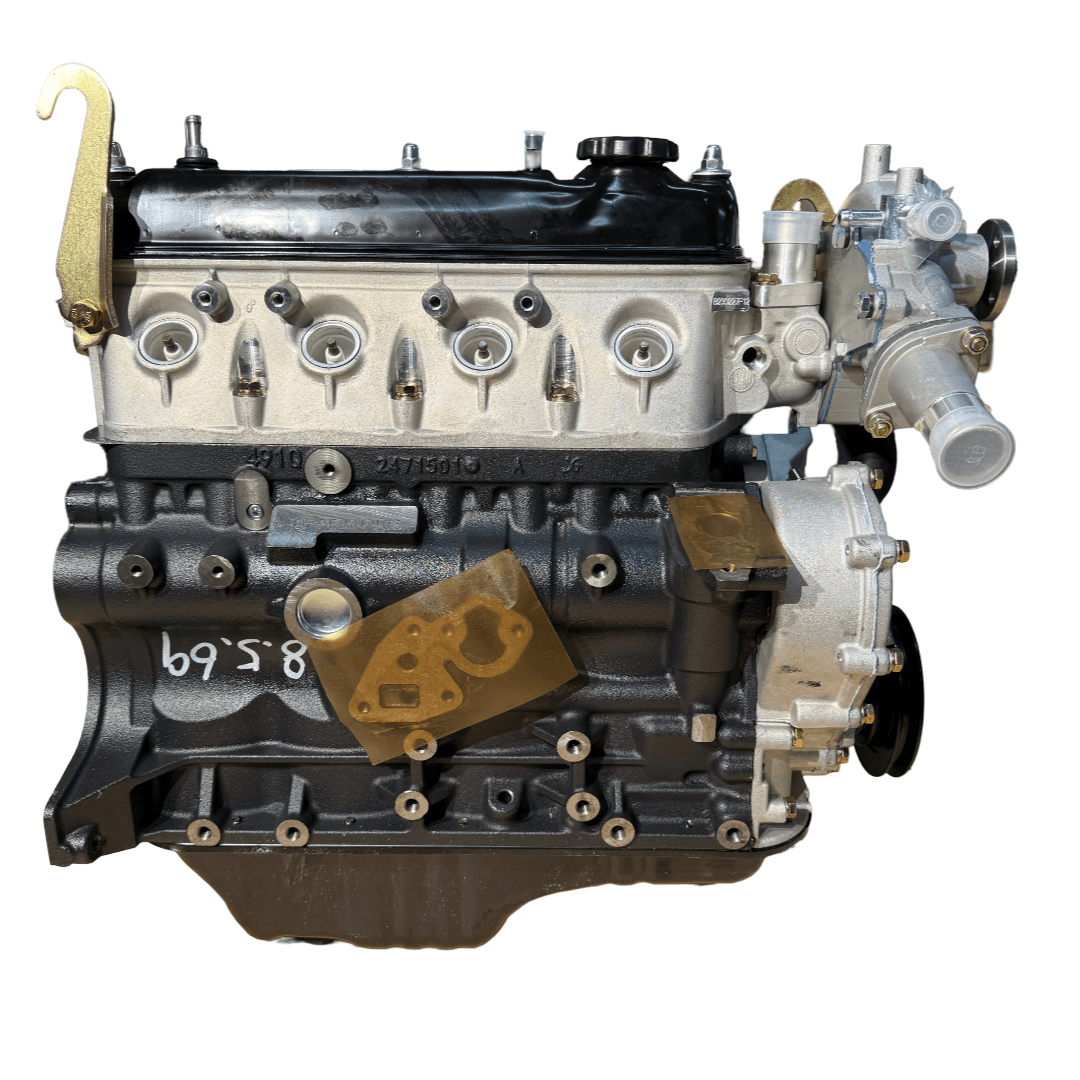Top Modifications to Enhance the Performance of Your 4Y Engine
Top Modifications to Enhance the Performance of Your 4Y Engine
Blog Article
Checking Out the Different Sorts Of Engine: Which One Fits Your Needs?
Inner combustion engines continue to control due to their dependability, while electric engines are getting traction for their sustainability. Hybrid engines supply a versatile concession, and diesel engines stand out for their power in demanding applications.

Inner Burning Engines
Internal burning engines (ICEs) are the foundation of modern transport, powering a large variety of vehicles from vehicles to aircrafts. These engines operate the concept of converting gas into power with a collection of controlled surges within a burning chamber. One of the most usual types of ICEs consist of gas engines, diesel motor, and rotating engines, each designed to meet particular performance and efficiency needs.
Fuel engines typically make use of spark ignition, while diesel motor count on compression ignition, resulting in distinct differences in fuel effectiveness and power output (4y engine). Rotary engines, or Wankel engines, use a portable layout and smooth operation, but are much less frequently used in mainstream applications
ICEs have gone through significant developments in technology, including the intro of turbocharging and gas injection systems, which boost overall effectiveness and performance. Despite their effectiveness renovations, ICEs face increasing analysis because of their environmental effect, specifically relating to greenhouse gas discharges. As the automotive market evolves, the future of ICEs remains a topic of dispute, stabilizing performance, effectiveness, and environmental factors to consider. They continue to play an important function in global transport infrastructure.
Electric Engines
As issues regarding ecological sustainability and fossil gas reliance grow, electrical engines have become an engaging choice to inner burning engines. These engines make use of electrical motors powered by batteries or fuel cells, offering a cleaner and extra efficient means of propulsion.
Among the primary benefits of electrical engines is their lowered exhausts. Unlike typical engines that shed nonrenewable fuel sources, electrical engines create no tailpipe emissions, significantly decreasing air pollution and adding to boosted public wellness. Additionally, the performance of electrical motors usually goes beyond that of interior combustion engines, transforming a higher percentage of energy from the power resource right into functional power for movement.
Electric engines are also significant for their quiet procedure, making them optimal for city environments. 4y engine. The simplicity of their design results in less relocating components, which can result in reduced maintenance prices and enhanced reliability over time
Nonetheless, challenges remain, including battery manufacturing effects, charging framework, and array limitations. Despite these hurdles, the growing financial investment in electrical automobile modern technology and renewable resource sources factors towards a promising future for electric engines, placed to play an essential duty in the change toward sustainable transportation.
Hybrid Engines
Blending the advantages of both electrical and typical internal combustion engines, hybrid engines stand for a versatile option in the pursuit for reliable and sustainable transport. These engines incorporate a fuel or diesel engine with an electric motor, permitting for improved fuel efficiency and lowered discharges compared to traditional vehicles.
Hybrid engines run in several settings, making use of the electrical motor for low-speed driving and the internal burning engine for greater rates or when even more power is required. This vibrant operation not just improves gas economic situation but additionally adds to a smoother driving check out this site experience. Regenerative stopping is one more critical function, capturing energy commonly shed during braking and rerouting it to reenergize the battery.

As customers significantly prioritize eco-friendliness, hybrid engines stick out as a sensible option, offering an effective equilibrium of efficiency, performance, and environmental duty. This flexibility makes them appropriate for metropolitan travelling and long-distance traveling alike.
Diesel Motor
Effectiveness and power are trademarks of diesel engines, which have actually long been preferred for their toughness and fuel economic situation. These engines operate the concept of compression ignition, where air is pressed to a high temperature level prior to fuel is infused, igniting it without the need for spark plugs. This procedure enables diesel engines to accomplish greater thermal performance contrasted to gasoline engines, equating into better gas mileage and reduced co2 exhausts.
Diesel motor are particularly well-suited for durable applications such as trucks, buses, and commercial machinery, where torque and longevity are extremely important. Their design normally consists of more powerful parts to hold up against the higher stress generated throughout operation, causing longer service life and reduced upkeep expenses.

Different Fuel Engines
While diesel engines have lengthy dominated the landscape of durable source of power, alternative fuel engines are getting traction as feasible options for an extra sustainable future. These engines use a range of gas, such as compressed natural gas (CNG), ethanol, lp, and hydrogen, aiming to lower greenhouse gas exhausts and reliance on nonrenewable fuel sources.
One substantial benefit of different fuel engines is their possible to lower carbon impacts. CNG engines give off fewer contaminants contrasted to traditional diesel engines, making them ideal for metropolitan transportation systems and fleets seeking to boost air top quality. Ethanol, originated from biomass, not only reduces discharges but likewise supports farming economic situations.
Hydrogen gas cells stand for an innovative development in this world, using zero-emission power via a chain reaction in between hydrogen and oxygen. Obstacles such as framework growth and production expenses continue to be obstacles to extensive fostering.
Verdict
Interior combustion engines supply dependability, while electric engines focus on sustainability and lowered maintenance. Crossbreed engines incorporate the advantages of both, enhancing effectiveness, whereas diesel engines provide exceptional power and torque for heavy-duty applications.
Hybrid engines offer a flexible concession, and diesel engines stand out for their power in demanding applications. The most typical kinds of ICEs include fuel engines, go right here diesel engines, and rotating engines, each created to meet details performance and performance requirements.
Unlike conventional engines that shed fossil fuels, electrical engines generate no tailpipe emissions, dramatically lowering air contamination and contributing to improved public health.Hybrid engines run in numerous settings, making use of the electrical motor for low-speed driving and the interior combustion engine for higher speeds or when even more power is required. Hybrid engines incorporate the benefits of both, boosting performance, whereas diesel engines supply remarkable power and torque for heavy-duty applications.
Report this page